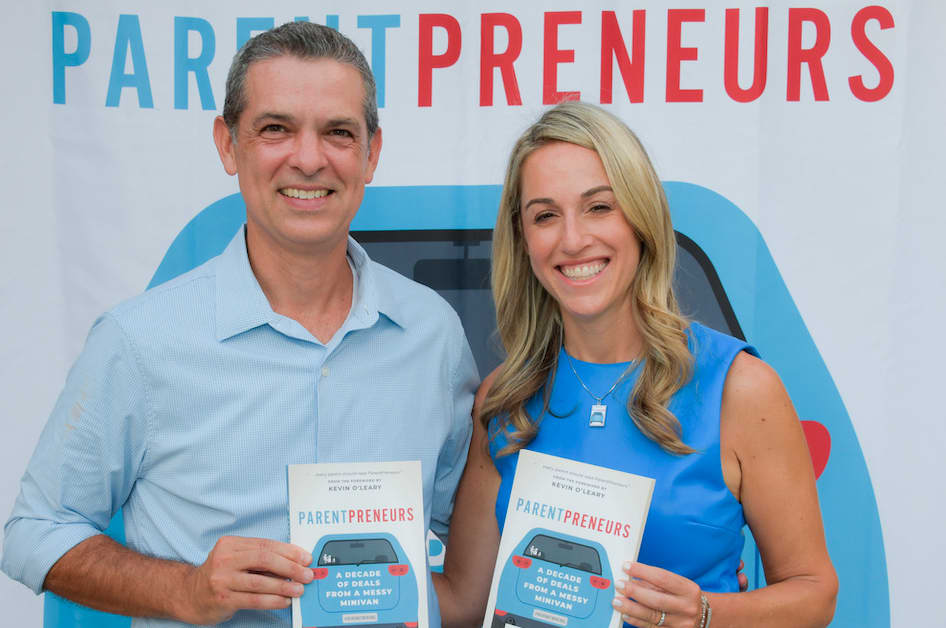 Twelve years ago, my husband Brian and I were raising two toddlers.While we made enough money through our 9-to-5 jobs to support our family, I was itching to start my own business.
Twelve years ago, my husband Brian and I were raising two toddlers.While we made enough money through our 9-to-5 jobs to support our family, I was itching to start my own business.
I brainstormed ideas every day.But one afternoon, during a four-hour drive, something clicked.We had just signed our son up for music classes — and they weren’t cheap.We were always looking for incredible experiences for our kids on a budget.
“What if there was a deals website that focused specifically on what parents want and need? Think of Groupon, but for parents,” I explained to Brian.
Instead of his usual eye roll, he said: “I love it!”
That simple response changed our lives.We invested $5,000 into building CertifiKID, and during our first eight months in 2010, we closed more than 130 deals with local businesses and brought our subscriber count to 13,000.By October 2011, we had hit $1 million in gross sales.
We now bring in an average of $5 million in sales a year, and we’re on track to generate $6 million by the end of 2022.
Many people want to know how we achieved great success.
Here are the most valuable business lessons I learned along the way:
Money Report
Uninsured Kids Will Still Receive Covid Vaccines for Free After Shots Move to Commercial Market
1.
Make your business name short, memorable and easy to spell.
When coming up with a name, you really need to consider factors like how people will respond to it and whether it will still make sense as your business grows and changes.
Brian immediately came up with the name “CertifiKID.” But looking back, it is one of our biggest regrets.Every day, someone mispronounces it, usually calling us “Certified Kid.”
In emails and on documents, people also often spell the name wrong, including on checks, which leads to us having to spend time addressing the error.
2.Keep hiring expenses as low as possible.
Rather than come up with a budget when first starting out, we used only what we could afford to invest, which was $5,000.We maintained a lean staff, with a mix of full-time employees and independent contractors.
It was important to understand every facet of our business, from social media to customer service, before we made any costly decisions.
When we did start hiring, for example, we hired people on a contractor basis, with a three-month probation period.
Once it was clear that someone was right for the role, we brought them on full-time.
3.Focus on your local community first.
We grew organically through word of mouth, social media, and even the occasional bartering.
During our first two years in business, we focused solely on our home base in the Washington D.C.and Baltimore area.
We asked our family and friends to spread the word.
I also did my best to connect with every local parent-teacher association, business owner and media outlet.
Once we proved our concept, we slowly expanded into other cities, including Chicago, Atlanta, New York, Los Angeles, San Francisco and Philadelphia.Starting local and taking the time to perfect our business allowed us to build something with longevity.
4.Great customer service will get you far.
We had unmatched customer and member service.Jamie would answer customer calls at 11:00 p.m.
on a Saturday, and people were shocked to hear the CEO at the other end of the phone.
We would issue refunds like candy and suck up the losses on transaction fees.This approach created loyalty with our subscribers, which inspired them to make multiple purchases and spread the word about the business.
Sacrifice some time and money upfront, and you will gain customer loyalty in the long run.
5.Knowing your worth will prevent you from making bad deals.
Early on, we turned down 10 acquisition and partnership opportunities.We had built a great team, and we wanted to run things our way for as long as possible.
Knowing our worth helped us immensely when we appeared on “Shark Tank” in 2019.
It was a tough negotiation, but we landed a deal with Kevin O’Leary for $600,000 in exchange for 19% equity.
O’Leary and his team have helped us immensely in growing the business nationally and weathering the pandemic.
6.You don’t need to follow what’s popular to succeed.
In our first couple of years, a big trend with sites like ours was to sell one deal a day to keep the excitement going and draw people in on a daily basis.
We followed suit, but the problem was, parents understandably aren’t always great at making quick decisions, so by the time they heard about a deal and wanted to buy it, we had already pulled it from the site and were on to the next one.
However, we did learn a valuable lesson.Our success would come from building relationships rather than trying to copy big competitors.Our philosophy was that we wouldn’t lose any deal with someone we wanted to build a relationship with because of a price.
So over time, we developed a reputation that we could make things work with any business we wanted to collaborate with and advertise for.That flexibility became one of our business’ biggest strengths.
Disclosure: CNBC owns the exclusive off-network cable rights to “Shark Tank.”
Jamie and Brian Ratner are the husband-and-wife co-founders of CertifiKID, a deals website for parents.They are also the authors of “ParentPreneurs: A Decade of Deals from a Messy Minivan.” Follow them on Instagram.
Don’t miss:
– ‘I work just 2 hours a day’: A 24-year-old who makes $8,000 a month in passive income shares her best business advice
– This 30-year-old makes $114,000 a month in passive income: ‘4 businesses you can start today for $99 or less’
– This 24-year-old lost her waitressing job.Now she makes $8,600 per month in passive income: ‘I work just 2 hours a day’
Sign up now: Get smarter about your money and career with our weekly newsletter
Also on CNBC
– I talked to 1,000 CEOs of successful companies—and they all agree this is the No.1 type of employee
– How 2 college friends went from dorm-room business to $250,000 ‘Shark Tank’ deal
– CEO of Singapore’s multi-million dollar homecare start-up shares tips for success.
